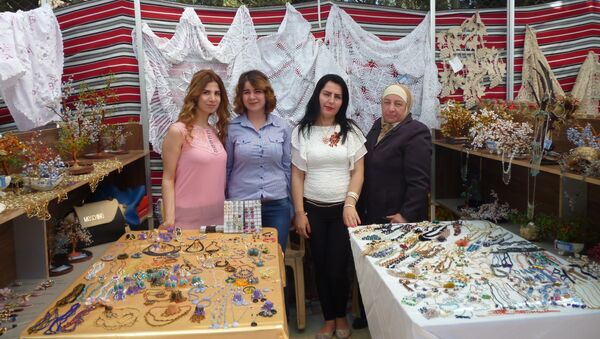Sputnik Arabic met with some of these women from rural areas who, under these difficult conditions, have managed to retain traditional Syrian arts and crafts and have found their niche for earning money.
Arij Id Hasan from the village of Dir Mama in the province of Hama is engaged in traditional knitting using silk threads. She recently crafted beautiful napkins for Russian women who are fighting terrorism in Syria.
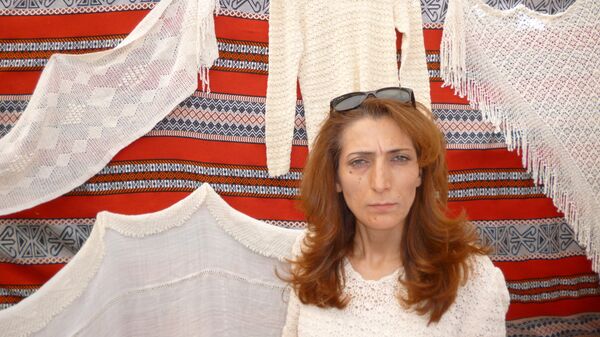
The woman grows silkworms herself and extracts threads from its cocoons. Production had declined after sanctions were imposed, as previously the silk items were purchased by Syrians residing in Japan, China and India.
Despite the setback, Id Hasan still independently cultivates a small amount of these insects and creates silk threads for shawls, napkins, scarves, bedspreads and clothes.
A student from the Afrin district, Susan Abadi is a talented painter who paints pictures of dervishes, famous places in Aleppo, the countryside, nature and maps of Syria.
She also makes traditional sweets, cheese and olive oil. In an interview with Sputnik, Abadi said that she hopes one day a market will open in Aleppo for the sale of rural products without any intermediaries.
Nasra Ganim is a gifted craftswoman who makes clay products and wooden boxes.
She said that sometimes it takes her over two weeks to produce an item which then is very difficult to sell. “We need support for our work and a special market for our produce,” Ganim said.
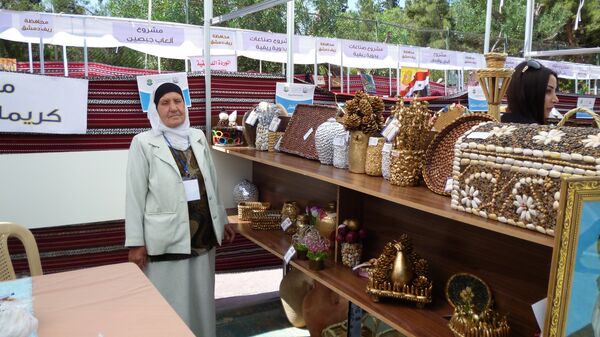
Misun Shaaban, an engineer by education, is now engaged in pottery making. She also crafts trays made out of straw and wicker baskets.
There were special courses organized to train women in various crafts making. Small businesses were established, assistance was provided in obtaining loans and that helped with the sale of products at exhibitions in Latakia.
Shaaban said that this helped women to earn money during the crisis. According to her, straw dishware and baskets are in great demand currently.
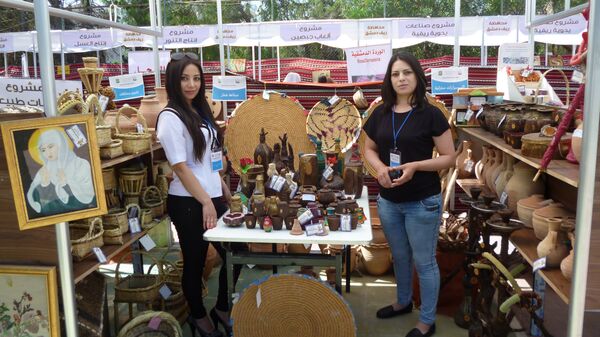
Rama Shahin, Dalal Usef and Rim Hamad make ornaments from beads, crystals and precious and semiprecious stones in Tartous. They participate in all local exhibitions but they have said that currently there is a poor demand for their products as people aren’t buying much of such things.
The women said that they wish to go to Russian exhibitions and sell their products to the consumers there.
Sultana al Akhras sells handmade bread, which is made in a tandoor oven. To build such an oven one must use a special black stone, which is mined near Damascus.
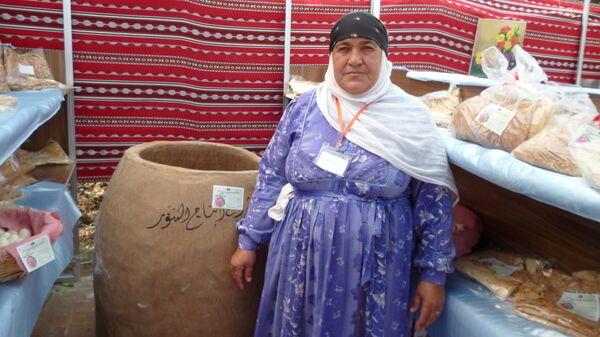
Bread is a commodity which is needed at all times and especially during the war.
Iman Muhammed Faki lives in a mountain village in the province of Hama.
When the crisis began and the search for a new occupation started, she realized that the most necessary and promising work for her was food production. After overcoming such difficulties as constant interruptions in electricity, Faki managed to establish her business and even managed to save her brother.
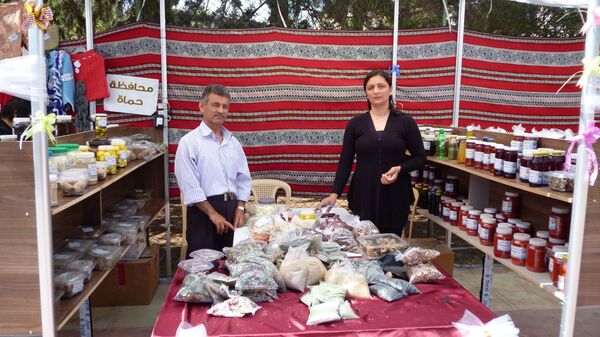
When Muhammad Faki was fighting terrorists in Aleppo and there were constant delays with food, she tried to send him items with every opportunity she received.
In an interview with Sputnik, Faki thanked Russia for helping Syria in its fight against terrorism.
Ahmed al Kadiri told Sputnik that the main obstacle for small businesses is the lack of permanent sites in each province for the sale of products.
However, in order to solve this issue, the Syrian government recently had allocated 200 million Syrian liras for the creation of a trade center in Latakia for women from the countryside.
Furthermore, three similar branches will be opened in the smaller cities of the province. There is also a plan to open similar centers in other parts of the country for women to run their business and provide for their families during these tough times.

